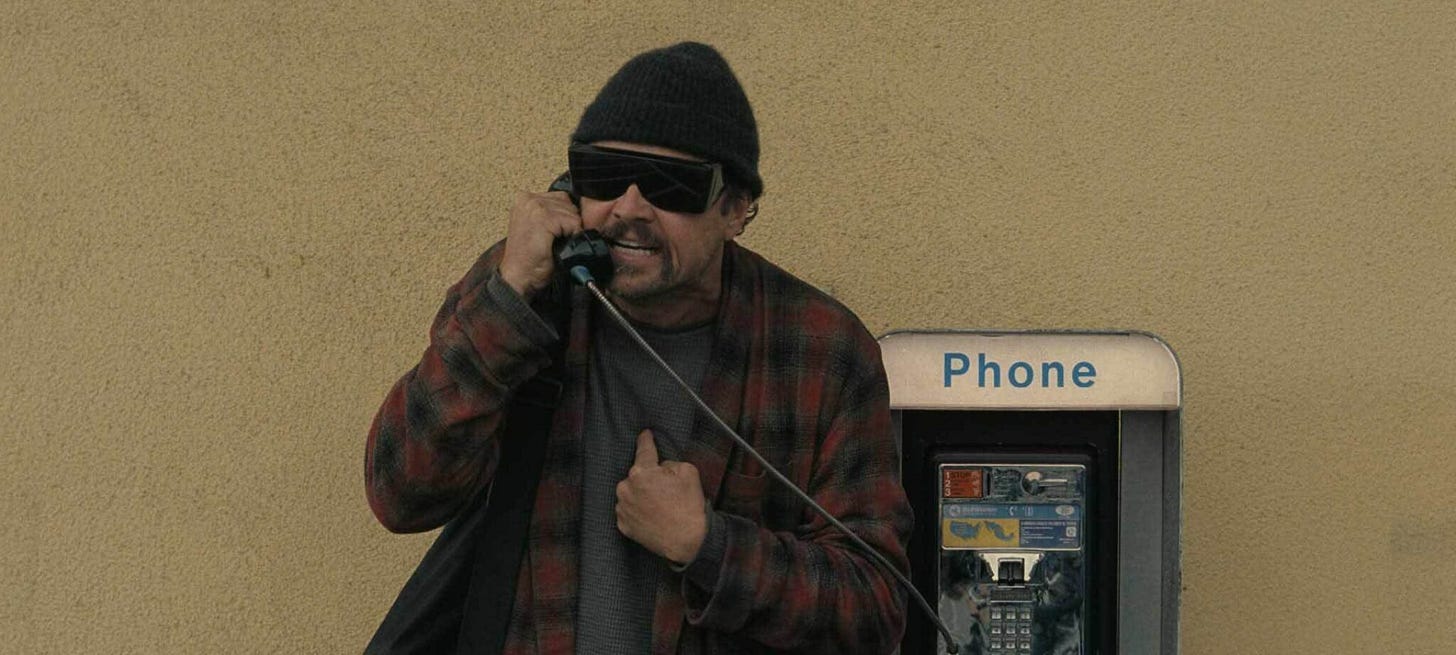Satire isn't dead, it's just had a facelift
Paul Thomas Anderson's One Battle After Another manages to ridicule the already ridiculous and do so with such relentless, aggressive scope.
When he stepped back from his responsibilities on Veep, longtime god-figure in the political comedy world Armando Iannucci remarked how political satire had lost its appeal to him as a line of work. He found that when the world of politics was so far-fetched, there was no longer fun to be had in crafting far-fetched political narratives. Jokes about the ridiculous mishandling of scandal after scandal began to get rather samey, as politicians seemingly tried their absolute hardest to consistently make themselves look like a prat. The times have changed, however. This week (despite gaffes around teleprompters, speaker systems, and escalators), when Donald Trump - he of Covfefe fame - took to the stage to address world leaders at the UN, his crowd no longer laughed at his ridiculousness, instead they sat there and listened, genuinely afraid that the leader of one of the world’s superpowers is so unhinged that he could cause global catastrophes just because somebody didn’t nod along to his very ineloquently phrased tirades. In this world, it feels that the time for light-hearted political satire is still gone, but for different reasons than before. With the rising feeling of all-out dystopia in the real world, the time for light-hearted satire has passed - instead, it is the turn of other genres to hold our money-hungry overlords to task.
Genre films have long acted as a means of making social commentary. In sci-fi, where we see aliens as threatening, they act as an allegory for an issue affecting people in the real world: be it the threat of gentrification of council estates in Attack the Block, or the waking up to the importance of environmental concerns in Warning From Space; or, when they are seen as peaceful, they act as a means of holding the mirror up to our own society, forcing us to reflect on how our systems cause issues, such as issues around divorce in E.T.. Like I said, this is nothing new - this ground is well-tread. However, in a world where satirical comedy is silenced, taken off the air, and sued to high heaven, there is an increased need for storytelling that challenges a regime.
While there is a place for the Jimmy Kimmel’s of the world to offer their light entertainment version of criticism, there is an increased need to go beyond name-calling. The idea that the right is stupid is an old, over-played stereotype: political persuasion has limited correlation to intelligence. Name-calling can only take a movement so far, then before long, you are just preaching to the converted - themselves stupid enough to be convinced that the fact that someone is willing to make a couple of jokes makes a difference, and laugh along as their favourite light entertainer distacts them as the world around them burns.
So, when the laughter stops, what are we to do? People on both sides of a political argument feel angry. Angry at a system that has let them down. Angry at one another for not seeing things from their point of view. People are right to feel angry, but currently, only one side of the political spectrum appears to harness that anger to fuel action. Rightly or wrong, these actions are far more effective at winning over a point of view than a couple of jokes or an impersonation; it is this anger-turned-action that separates Paul Thomas Anderson’s attack on the current state of US Politics in One Battle After Another from something like Mark Rufallo’s light entertainment impressionism in Mickey 17 or South Park’s ongoing dick jokes at the president’s expense. PTA manages to channel this rage, this frustration at the state of the nation into something that is all-out, all-consuming action - so much so that you can get so wrapped up in it all that even the most pro-Trump person may come away having heard the message that he is making.
Too busy calling one another ‘woke’ and ‘gammon’, neither side of the political spectrum can bear to hear what the other has to say in debate, so to expect that from them in their cultural sensibilities is perhaps a little unfair. In choosing the blockbuster as the vehicle for his message, PTA manages to reach people that traditional comedic satire cannot in this day and age. I don’t suggest for one second that this film has the power to save the world, but it certainly has the scale to spread a message, not to mention it is awfully enjoyable along the way.


